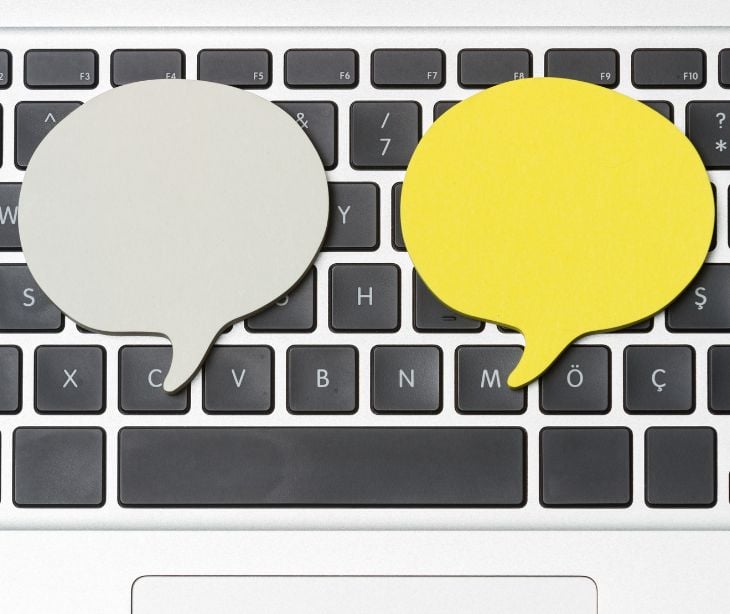3 min read
Risks of using regular text messaging for mental health communication
Liyanda Tembani
December 19, 2024

Using regular text messaging apps for mental health communication is risky primarily due to inadequate security and privacy measures. These apps lack encryption, leaving sensitive patient information vulnerable to interception. Privacy concerns arise from the potential unauthorized access to protected health information (PHI) stored on devices, compromising confidentiality. Misunderstandings are common as text messages lack nonverbal cues, leading to misinterpretations of emotional context. Additionally, these apps offer limited functionality for effectively sharing detailed treatment plans or crisis interventions, making them unsuitable for comprehensive mental health care.
HIPAA requirements for text messaging
The HHS states that "The Security Rule requires covered entities to maintain reasonable and appropriate administrative, technical, and physical safeguards for protecting e-PHI." That includes encrypting PHI in transit and at rest during electronic communication, including text messaging. Encryption scrambles data so only authorized users can access it, ensuring confidentiality. Regular text messaging apps do not offer encryption, leaving PHI vulnerable to interception by unauthorized parties.
In addition to encryption, HIPAA requires strong authentication measures such as multi-factor authentication (MFA) to verify the identity of users accessing PHI. That adds an extra layer of security beyond passwords alone. Moreover, maintaining audit trails that track who accessed PHI and when ensures accountability and helps identify potential security breaches.
Mental health practices must also secure business associate agreements (BAAs) with third-party vendors handling PHI to ensure they comply with HIPAA regulations. Finally, obtaining written patient consent before using text messaging for communication involving PHI helps comply with HIPAA's Privacy Rule.
Lack of security
According to an evaluation of secure messaging applications for a healthcare system, "Many clinical staff prefer text messages over other communication methods such as e-mail and paging.". However, one of the primary risks of using regular text messaging apps is their lack of security features. Unlike HIPAA compliant text messaging platforms, these apps do not encrypt messages or provide secure storage for PHI. That exposes sensitive mental health information to unauthorized access if a device is lost, stolen, or accessed by someone other than the intended recipient. Without encryption, intercepted messages can be read and misused, compromising patient confidentiality and trust.
Privacy concerns
Regular text messaging apps do not provide adequate privacy protections for sensitive information. Even if messages are not intercepted, there is a risk of unauthorized access to PHI stored on devices. This exposure could occur if a phone is unlocked or shared among family members, friends, or colleagues, potentially leading to breaches of confidentiality.
Misunderstandings
Text messaging lacks the nonverbal cues present in face-to-face or even voice communication. Without these cues, text messages can be easily misinterpreted, leading to misunderstandings or miscommunication about sensitive issues such as emotions, symptoms, or treatment progress.
Emoticons, while commonly used to convey emotions, can also lead to misunderstandings due to their subjective interpretation. What one person interprets as a positive or supportive emoticon may be perceived differently by another, potentially affecting the therapeutic relationship or communication effectiveness in mental health settings.
Limited functionality
Regular text messaging apps lack the functionality required for comprehensive mental health care. They are inadequate for sharing detailed treatment plans, psychoeducation materials, or crisis intervention strategies effectively. Mental health professionals often need to provide patients with resources, exercises, or links to educational materials best delivered through secure platforms designed to protect PHI.
Crisis ineffectiveness
Text messaging is unsuitable for mental health crisis intervention due to its asynchronous nature and potential delays in response. Urgent situations require real-time communication channels, such as phone calls or secure video conferencing, to ensure prompt assessment and intervention by mental health professionals.
Tips for managing these risks
- Mitigating security risks: Mental health professionals should prioritize HIPAA compliant text messaging platforms that offer robust encryption, secure storage, and authentication mechanisms to protect PHI from unauthorized access.
- Minimizing misunderstandings: Keep messages concise, clear, and focused on simple topics to enhance clarity in text-based communication. Avoid complex or emotionally charged discussions via text messaging to prevent misinterpretations that could impact patient-provider rapport or treatment outcomes.
- Addressing functionality limitations: Reserve in-depth discussions, treatment planning, and resource sharing for secure platforms or face-to-face interactions.
- Establishing clear boundaries: Define guidelines for text messaging use in mental health treatment, including expectations for response times and limitations on discussing sensitive information. Communicate to patients that text messaging is unsuitable for emergencies or urgent matters, providing alternative contact methods for crises to ensure timely and appropriate care.
FAQs
Are regular text messaging apps ever permissible for discussing non-sensitive information in mental health care?
Regular text messaging apps can be used for general appointment reminders or scheduling updates. However, sensitive discussions involving mental health diagnoses or treatment plans should be conducted through secure, HIPAA compliant platforms.
What steps should mental health professionals take if a patient requests to communicate via text message?
Mental health professionals should inform patients about the risks of using regular text messaging apps for sensitive information and offer alternatives such as secure messaging platforms or HIPAA compliant email.
How can mental health professionals ensure their chosen text messaging platform is HIPAA compliant?
Mental health professionals should verify that the text messaging platform offers encryption for messages in transit and at rest, secure user authentication, and a signed BAA.
Subscribe to Paubox Weekly
Every Friday we'll bring you the most important news from Paubox. Our aim is to make you smarter, faster.



